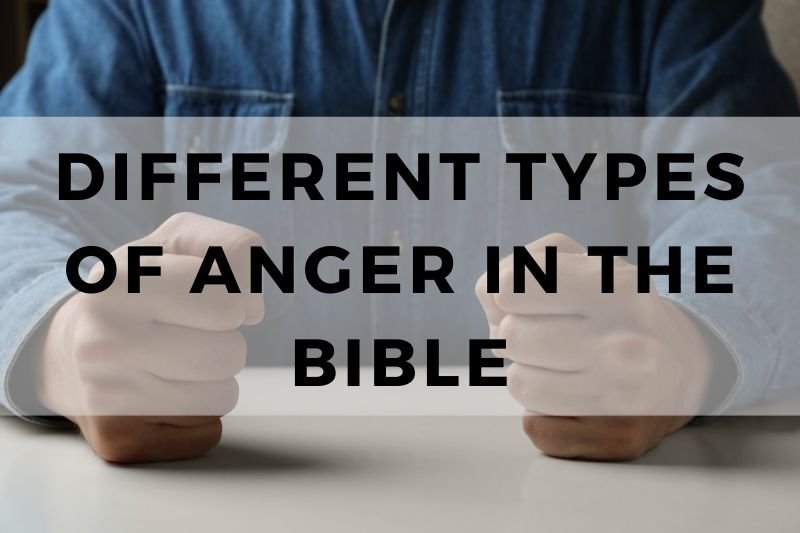
The Bible, a foundational text for so many, offers insights into human emotions, including anger. Understanding the various types of anger depicted in the Holy Book can provide guidance for navigating our own emotions and relationships.
In this article, we’ll explore seven distinct types of anger found within the Bible’s narratives. From righteous indignation to forgiveness, each type offers a lesson in managing anger in a way that aligns with our faith and values. Let’s delve into these insights with clarity and purpose.
Different Types of Anger in the Bible
#1. Righteous Anger
Righteous anger, also known as justified anger, is portrayed in the Bible as a response to injustice or wrongdoing. It is a form of anger that is in alignment with God’s will and seeks justice. In Ephesians 4:26, it is advised, “Be angry and do not sin; do not let the sun go down on your anger.” This suggests that anger, when directed towards righteous causes, is permissible but must not lead to sinful actions.
#2. Unrighteous Anger
In contrast to righteous anger, unrighteous anger is characterized by selfishness, pride, and a lack of control. Proverbs 14:29 warns, “Whoever is slow to anger has great understanding, but he who has a hasty temper exalts folly.” This type of anger often leads to destructive behavior and conflicts with the principles of love and forgiveness advocated in the Bible.
#3. Slow to Anger
Being “slow to anger” is emphasized throughout the Bible as a virtue. Proverbs 15:18 states, “A hot-tempered man stirs up strife, but he who is slow to anger quiets contention.” This type of anger management reflects patience, self-control, and wisdom, allowing for a peaceful resolution of conflicts rather than escalating them.
#4. Human Wrath
Human wrath refers to the intense and uncontrolled anger that arises from human emotions and desires. James 1:19-20 advises, “Know this, my beloved brothers: let every person be quick to hear, slow to speak, slow to anger; for the anger of man does not produce the righteousness of God.” This type of anger often leads to sinful behavior and disrupts relationships.
#5. Anger Leading to Sin
Anger that leads to sin is cautioned against in the Bible. Ephesians 4:31 warns, “Let all bitterness and wrath and anger and clamor and slander be put away from you, along with all malice.” This type of anger is destructive, causing harm to oneself and others, and is antithetical to the teachings of love and forgiveness.
#6. Controlled Anger
Controlled anger, also known as tempered or managed anger, involves acknowledging and experiencing anger without allowing it to dictate one’s actions. Proverbs 16:32 states, “Whoever is slow to anger is better than the mighty, and he who rules his spirit than he who takes a city.” This type of anger management requires self-discipline and reliance on God’s strength.
#7. Forgiveness Over Anger
Forgiveness over anger is a central theme in the Bible, emphasizing the importance of letting go of resentment and embracing reconciliation. Colossians 3:13 advises, “Bear with each other and forgive one another if any of you has a grievance against someone. Forgive as the Lord forgave you.” This type of response to anger reflects God’s grace and mercy, promoting healing and restoration in relationships.
Closing Thoughts
Understanding the different types of anger portrayed in the Bible offers valuable insights into managing our emotions and relationships. From righteous indignation to forgiveness, each type teaches us important lessons about responding to anger in ways that honor God and promote peace. By cultivating traits such as patience, self-control, and forgiveness, we can navigate conflicts with wisdom and grace. Let us strive to emulate the examples of controlled anger and forgiveness found in Scripture, fostering harmony and reconciliation in our lives and communities.
